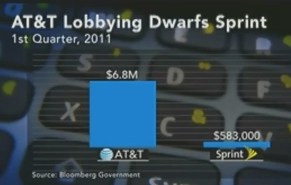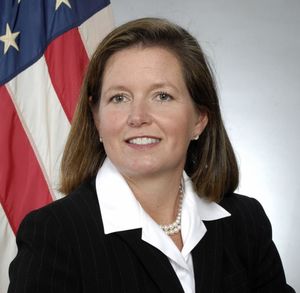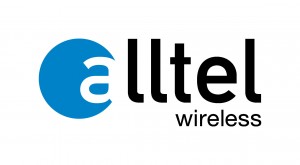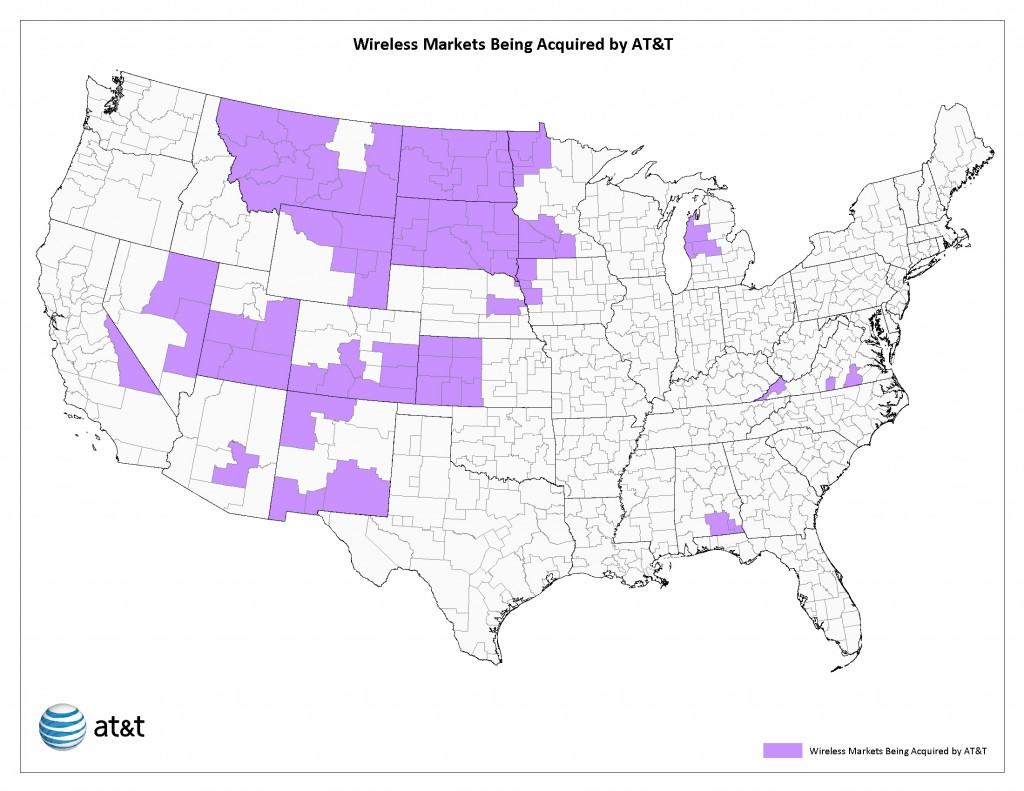 Wading through the bulging file of comments at the Federal Communications Commission website reveals some strange and unusual testimonials from groups one would think would have much better things to do with their time and resources than advocate for a multi-billion dollar super merger between AT&T and T-Mobile. But integrity means little next to a big fat check from AT&T, and many so-called “charities” really do believe it begins at home in their own bank accounts. So with their hands out, groups like Wisconsin Coalition for Consumer Choice and the Urban League, and politicians like Bobby Jindal become dollar-a-holler advocates for AT&T’s agenda, offering the flimsiest reasons around to push for the merger’s approval.
Wading through the bulging file of comments at the Federal Communications Commission website reveals some strange and unusual testimonials from groups one would think would have much better things to do with their time and resources than advocate for a multi-billion dollar super merger between AT&T and T-Mobile. But integrity means little next to a big fat check from AT&T, and many so-called “charities” really do believe it begins at home in their own bank accounts. So with their hands out, groups like Wisconsin Coalition for Consumer Choice and the Urban League, and politicians like Bobby Jindal become dollar-a-holler advocates for AT&T’s agenda, offering the flimsiest reasons around to push for the merger’s approval.
Among the least savory are groups purporting to represent income-challenged minority communities who advocate for a merger that will promote higher prices for less service. Such advocacy would taint any group and calls into question whether contributions are really helping those in need or just those who claim to represent them.
As we suspected, after reviewing dozens of submissions favoring the merger, virtually every last supporter either had direct financial ties to AT&T, had AT&T personnel in leadership positions, or were run by Washington, DC lobbying firms that have a past history of doing work on behalf of AT&T. Ordinary consumers, and there were thousands, submitted comments opposing the merger — citing reduced competition, higher prices, fewer choices, and offering few benefits or improved service. At least some live in the reality-based community, not AT&T’s field of overpriced dreams and broken promises.
A Sampling:
Wisconsin Coalition for Consumer Choice
Here’s a “group” purporting to represent the interests of consumers, but they’re nowhere to be found. George Klaetsch, executive director, claims AT&T’s merger will “immediately increase consumer choices and access to quality broadband and mobile services. Thousands of new cell sites will become available, the nation’s broadband footprint will be significantly expanded, and most importantly, more than 46 million more customers will gain instant access to 4G LTE technology – many of them right here in Wisconsin.”
Why if you approve this merger, there will be free candy for everyone, too.
The group’s website offers an unwelcome introduction with a series of technical faults, perhaps a testament to how few consumers ever bother to visit it, and carries an earnest disclaimer:
[…] We make no representations or warranties of any kind, express or implied, about the completeness, accuracy, reliability, suitability or availability with respect to the website or the information, products, services, or related graphics contained on the website for any purpose. Any reliance you place on such information is therefore strictly at your own risk.
Good to know.
Klaetsch’s letter forgets to mention he’s a registered lobbyist for Public Affairs Strategies, Inc. When he’s not fronting AT&T’s agenda, he also represents the interests of AstraZeneca Pharmaceuticals, the Elevator Industry Work Preservation Fund, and the creepy-sounding Funeral Service & Cremation Alliance of Wisconsin, among other groups.
Wellington Area Chamber of Commerce
This well-meaning local chapter of the Chamber, who counts AT&T as a member, has fallen hook, line, and sinker for AT&T’s promise to deliver 4G service to “97 percent of the country,” assuming the merger gets approved. Of course, AT&T will upgrade to 4G with or without the merger, and this particular Chamber’s executive director apparently does not realize T-Mobile’s contribution to improving service in rural America is less than robust. When an active member of a civic or business group happens to be AT&T, getting a letter written on behalf of the company’s agenda comes as soon as the talking points can be handed out at the next Chamber meeting.
Unfortunately for the people of Wellington, losing one more competitor guarantees rural America fewer competitive choices, higher prices, and less service, not more.
United Way of Northwest Florida

AT&T Donates $9,000 to the United Way of Northwest Florida, which promptly returns the favor with a nice letter to the FCC supporting the telecom company's agenda.
Some residents in northwest Florida could reconsider their future contributions to “charitable groups” who increasingly spend their time and attention involving themselves in big corporate mergers, meeting the needs of some of their biggest donors. No better example of this comes from the United Way of Northwest Florida, who accepted a $9,000 contribution from AT&T in one hand, while banging out this letter of support for AT&T’s merger with the other. It’s classic dollar-a-holler advocacy.
While this chapter believes the interests of cell phone users will be best served by an AT&T – T-Mobile merger, we’re wondering what actual charitable endeavors go unserved while its leadership wastes time and resources filing comments with the FCC on a billion dollar telecom deal.
Urban League of New Orleans
This chapter of the Urban League “firmly believes that the greater New Orleans area we serve would greatly benefit by added broadband connectivity. Studies show that the underserved, urban communities with the greatest access to broadband Internet see the strongest economic growth. With high-speed Internet, residents can more easily access important resources online, from educational resources for schools to job opportunities for those who are out of work or seeking to update their skills. High-speed Internet enables greater connectivity between all stakeholders, more able to respond effectively and efficiently to the needs of our city.”
Somehow, for those noble reasons, they are supporting AT&T’s and T-Mobile’s merger. AT&T is the company that pitches some of the most expensive and most limited wireless broadband plans in the country. How this benefits urban New Orleans may escape you.
What didn’t escape us was the fact AT&T Louisiana president Sonia Perez is the group’s 2011 Annual Gala Chairperson. She’s also a participant on the group’s governing board.

In addition to the big oil, chemical, credit card, and health insurance companies sponsoring Jindal's wife's charity is none other than AT&T.
Gov. Bobby Jindal of Louisiana
Gov. Jindal is a big supporter of AT&T’s merger with T-Mobile. The Washington Post notes he is joined by 13 other governors writing the FCC to push for approval. Jindal is honoring Louisiana’s time-tested notoriety for questionable political dealings. Perhaps it is just a coincidence his wife runs the Supriya Jindal Foundation, who counts among its key sponsors… you guessed it, AT&T. Before one assumes Jindal has a legitimate interest promoting AT&T, which invests money in Louisiana, consider this: Jindal has written only one letter to the FCC on a telecommunications issue since the agency’s electronic filing system was inaugurated in 1992. This one. Maybe he was busy on those other days. Then again, maybe he wasn’t.
Jindal closes his letter with these words: “I am confident that this merger will benefit the people of Louisiana.” That’s true, if you define “people” as his immediate family and the corporate executives of AT&T and T-Mobile who work and live in his state. Everyone else doesn’t matter.
United States Hispanic Leadership Institute
After reviewing dozens of submissions from charities and non-profit groups, the comments from USHLI really stood out above the others. Dr. Juan Andrade, president of the group is a downright feisty guy, singing paragraphs of praise for AT&T as a “model corporate citizen”:
“Like you, I too have heard that the merger will have a devastating impact on consumers, promote anti-competitive behavior, and result in higher prices; that the merger will be bad for business, bad for innovation and bad for workers. We’ve heard this all before – when SBC was acquiring Ameritech, when AT&T was merging with SBC, and so forth. And what have we seen? We’ve seen just the opposite. The Federal Communications Commission’s own data show that these concerns proved unfounded as consumers benefited from tremendous innovation and competition in the wireless space, all while seeing wireless voice and data prices drop. This “sky is falling” attitude is replaying itself as AT&T seeks approval to merge with T-Mobile. But the facts speak for themselves. The United States Hispanic Leadership Institute (USHLI) believes the Federal Communications Commission should rise above the skepticism, above the unsubstantiated claims, and above the impractical requisitions.”
What the FCC also needs to rise above is the considerable support Dr. Andrade’s group gets from AT&T. Undisclosed in Andrade’s spirited defense of one of the worst mergers in telecommunications history is the fact AT&T is the “honorary co-chair” and sponsor of the group’s 2011 fundraising efforts. It’s the public policy equivalent of “My Dinner With AT&T.” More wine?
Andrade conveniently ignores the fact AT&T is raising prices on wireless data products with punitive usage caps and overlimit fees. It’s not the sky falling, Dr. Andrade, it’s your credibility to speak as an independent observer while also enjoying AT&T’s largesse. When you engage in dollar-a-holler advocacy, American consumers have more than a right to be skeptical.


 Subscribe
Subscribe










